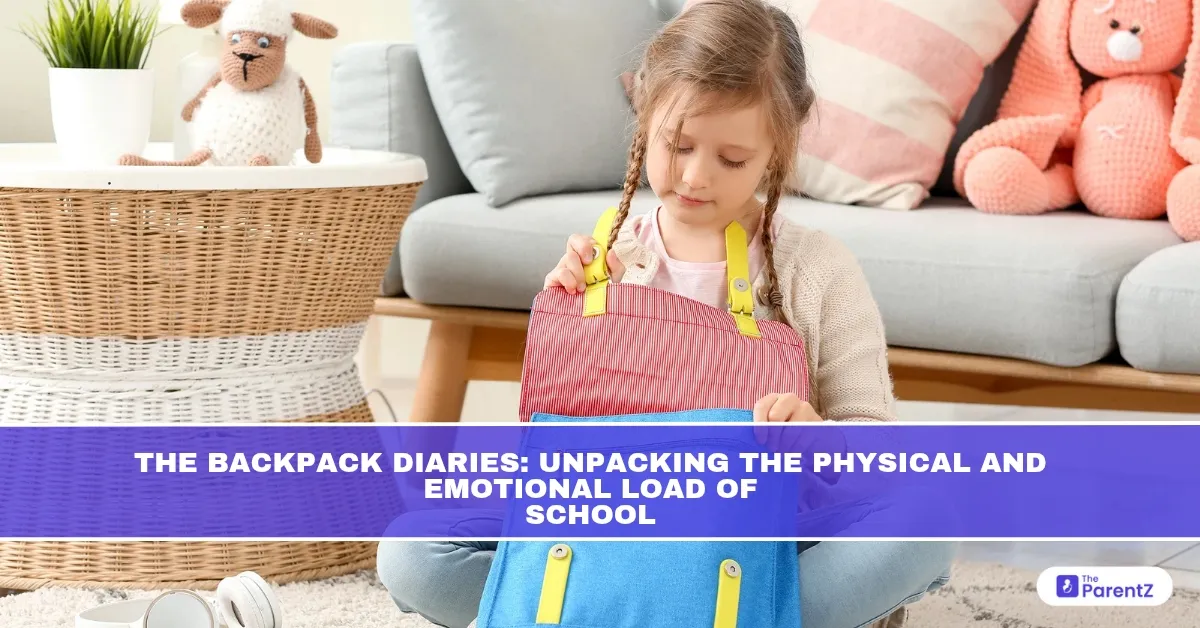This Is Something Every Parent Should Be Aware Of
When we watch our kids walk off to school each morning, backpack swinging and notebooks in hand, it’s easy to see the physical weight they carry. But what’s harder to see—and just as important—is the emotional weight they shoulder too.
From heavy backpacks to overwhelming expectations, today’s children are navigating more than we often realize. Understanding both the physical and emotional loads they carry can help us support them better—and keep them happy, healthy, and resilient.
The Physical Load: It’s More Than Just a Backpack
Research published in Spine and Pediatrics journals shows that:
- A backpack should weigh no more than 10–15% of a child’s body weight.
- Many children carry far heavier loads, leading to poor posture, back pain, muscle strain, and fatigue.
- Long-term effects may include spinal compression and chronic musculoskeletal problems.
Signs your child’s backpack is too heavy:
- Complaints of back, shoulder, or neck pain
- Forward-leaning posture
- Difficulty putting on or removing the backpack
- Red marks on shoulders from straps
Simple ways to lighten the physical load:
- Choose ergonomic, padded backpacks.
- Ensure kids use both shoulder straps.
- Regularly clean out unnecessary items.
- Communicate with teachers about digital or lighter homework options.
Bonus Tip: Look for backpacks with a chest or waist strap—they help distribute weight more evenly!
The Emotional Load: It’s What You Can’t Always See
Along with books and lunchboxes, your child also carries an invisible backpack filled with:
- Academic pressure
- Social challenges
- Anxiety about performance or friendships
- Fear of disappointing teachers or parents
According to a study in the Journal of Developmental and Behavioral Pediatrics, school-related stress is now a leading cause of anxiety in children as young as six years old.
Signs your child may be feeling emotionally overloaded:
- Frequent headaches or stomachaches (with no clear medical cause)
- Reluctance to go to school
- Changes in sleep or appetite
- Irritability or emotional outbursts
- Withdrawal from friends or family
Lightening the Emotional Load: What Parents Can Do
1. Create a Safe Space to Talk
Ask open-ended questions beyond “How was your day?”
- “What made you smile today?”
- “Was there anything tricky or stressful?”
Listening without immediately fixing it is powerful. Sometimes they just need to vent.
2. Prioritise Downtime
Unstructured, quiet time is as important as homework and activities.
Schedule regular “nothing” time:
- Drawing, listening to music, playing freely
It helps recharge their emotional batteries.
3. Set Realistic Expectations
Celebrate effort, not just outcomes.
Instead of focusing only on grades or wins, praise perseverance, creativity, and kindness.
Research from Child Development shows that growth mindset parenting—valuing effort over results—protects kids against academic stress.
4. Watch for Red Flags
If emotional stress seems constant or severe, consider talking to a counselor, pediatrician, or school psychologist. Early support makes a big difference.
A Balanced Backpack Checklist for Parents
Physical:
- Backpack weighs <15% of body weight
- Padded straps, both shoulders used
- Regular decluttering
- Ergonomic or rolling options if needed
Emotional:
- Daily check-ins without judgment
- Encouraging healthy sleep and play habits
- Celebrating effort over perfection
- Being mindful of overscheduling
Conclusion: Lightening the Load, Together
School is a big adventure—but it can sometimes feel heavy, too. By paying attention to both the visible and invisible loads our children carry, we can help them walk a little taller, smile a little bigger, and feel a little more confident.
After all, no child should have to carry the weight of the world on their shoulders—even if it fits in a backpack.
Together, step by step, we can make their journey lighter, brighter, and full of possibility.





Be the first one to comment on this story.